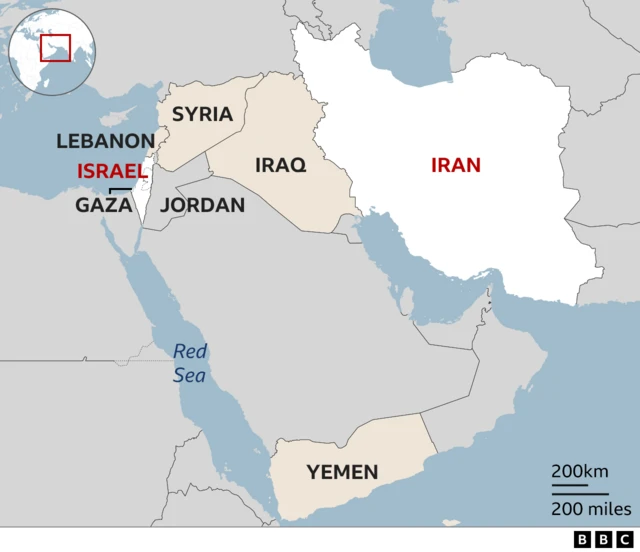



Israel launched strikes on Iran on June 13, targeting its nuclear program under "Operation Rising Lion," killing two IRGC leaders. Iran retaliated with drones, escalating tensions. The strikes followed an IAEA report on Iran’s non-compliance with nuclear obligations, amid stalled US-Iran nuclear talks, risking a broader Middle East conflict.

Copyright infringement not intended
Picture Courtesy: YNETNEWS
The recent Israeli airstrikes on Iran and the subsequent retaliation have pushed the Middle East to the brink of a wider conflict.
Israel launched a military operation "Rising Lion" striking key nuclear facilities like Natanz and Fordow, alongside senior military commanders and scientists.
Iran responded by launching multiple waves of ballistic missiles and drones towards Israel.
Iran's Nuclear Advancement => A recent International Atomic Energy Agency (IAEA) report highlighted that Iran has accumulated enough highly enriched uranium to produce several nuclear weapons. The IAEA's Board of Governors passed a resolution declaring Iran non-compliant with its safeguards obligations under the Nuclear Non-Proliferation Treaty (NPT), a first in two decades.
Sabotaging Nuclear Talks => The strikes occurred amid a backdrop of ongoing nuclear negotiations between Iran and the United States, aimed at reviving a deal to curb Iran's nuclear activities in exchange for sanctions relief. Israel has been a vocal opponent of these talks, believing they do not go far enough to dismantle Iran's nuclear capabilities. The attack effectively derailed the next round of negotiations.
Domestic Political Compulsions => For Israeli Prime Minister, escalating the conflict with Iran could serve domestic political purposes. His government faces internal pressure and criticism over the war in Gaza and his ongoing corruption trial. Creating a major external crisis can rally national support and divert attention from domestic troubles. 
Copyright infringement not intended
Israel
Objective: To eliminate what it perceives as an existential threat from a nuclear-armed Iran.
Stance: Israel maintains that Iran's nuclear program is for military purposes and has long advocated for a hardline approach, including military action. It views diplomatic efforts like the nuclear deal as insufficient and enabling Iranian aggression.
Iran
Objective: To preserve its sovereign right to a nuclear program, which it insists is for peaceful energy purposes, and to establish itself as a dominant regional power.
Stance: Iran feels its conventional military capabilities are weak compared to its opponents, making a nuclear deterrent attractive. In response to the IAEA resolution and potential new sanctions, Tehran has threatened to withdraw from the NPT altogether.
United States
Objective: To prevent Iran from obtaining a nuclear weapon while avoiding a full-blown military conflict in the Middle East.
Stance: The US, under President Donald Trump, withdrew from the 2015 nuclear deal (JCPOA) and reimposed a "maximum pressure" campaign of sanctions. While publicly distancing itself from the Israeli strikes, Washington has provided support for Israeli defense and is caught between backing its key ally and trying to de-escalate the crisis.
Risk of a Wider War => The direct military exchange between Israel and Iran is unprecedented and carries a high risk of escalating into a regional war, potentially drawing in other countries and non-state actors like Hezbollah.
International Response => Global leaders have expressed alarm, with the UN Secretary-General calling for "maximum restraint." Nations like France have affirmed Israel's right to self-defense while urging de-escalation, whereas countries like Oman and Qatar have condemned the Israeli attack.
Oil Prices => Global oil prices have surged due to fears of supply disruptions from the Middle East. A sustained conflict could disrupt shipping through the crucial Strait of Hormuz, through which about 20% of the world's oil passes.
Inflation => For a country like India, which imports over 80% of its oil, a spike in crude prices can weaken the currency, widen the current account deficit, and fuel domestic inflation.
Energy => India is highly vulnerable to rising oil prices. Disruption in supply from key partners like Iraq, Saudi Arabia, and the UAE, which ship through the Strait of Hormuz, is a major concern.
Trade => The conflict increases shipping and insurance costs, affecting India's exports. Rerouting trade around Africa adds significant time and expense.
Diplomatic Balancing Act => India maintains strong and independent relationships with both Israel and Iran, as well as with the United States. India must find a balanced diplomatic path, advocating for de-escalation while protecting its national interests.
Regional Stability => A wider conflict in the Middle East directly impacts India's interests, including the safety of the large Indian diaspora in the region and the stability of a critical economic partner.
Must Read Articles:
Source:
|
PRACTICE QUESTION Q. Analyze the geopolitical implications of Israel's military strikes against Iran in the context of regional stability in the Middle East. 150 words |




© 2026 iasgyan. All right reserved